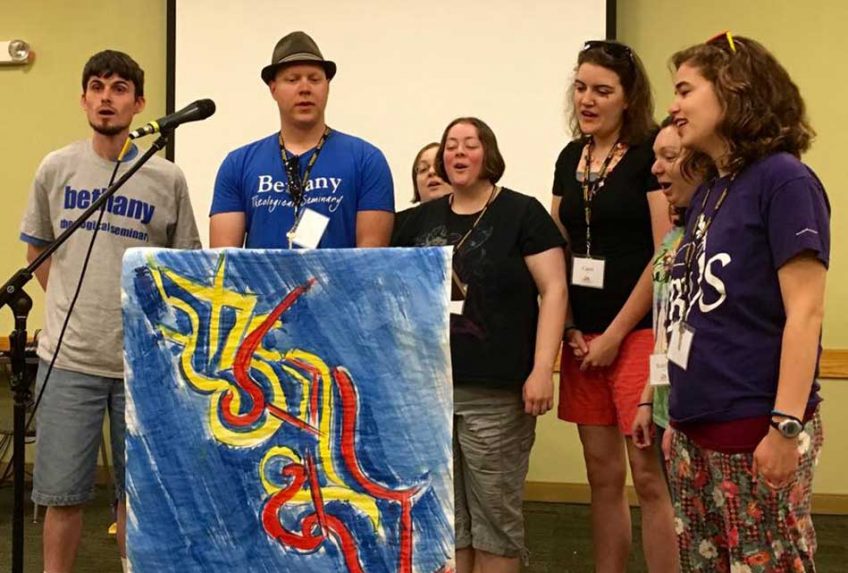Soon, I will return to Camp Blue Diamond for my fifth year on summer staff. In my years attending camp and working as a counselor and lifeguard, I’ve learned a lot about living in community.
The community you experience at camp is unlike just about anything you experience anywhere else in today’s world. We’re split into cabin units of 10-15 people, and we spend just about every second with our unit, at cookouts and outdoor adventures, Bible studies, and structured and unstructured play. There’s no technology, and the only distractions are the ones we create together. It’s the closest thing to intentional community living that I and most of my campers have ever experienced.
As a counselor, your very first job is to break the ice by helping campers learn each other’s names and get acclimated to the camp environment. Building community is hard, often awkward, work.
That first night there are a lot of important decisions to make as a group. You have to choose what to eat for your cookout dinner on Tuesday evening, your cookout breakfast on Thursday morning, and your cookout snack Thursday night. You have to pick when you do arts and crafts and nature sessions, when to go to the lake, and when to do the climbing tower and giant rope swing. The thing is, making decisions with other people is tough when you’ve just met them.
That’s where the counselors come in. That first night it’s really the counselors who drive the discussion. Whatever decisions counselors suggest, it’s likely that the campers will eagerly agree. And that’s okay for a starting point in your little camp community, but it shouldn’t be where the community stays. A big part of growing as a community throughout the week is allowing your campers to grow as engaged participants and leaders in the group.
Thankfully, kids living in community get it. They make fast friendships, and they approach life with unabashed enthusiasm. By Wednesday, your cabin unit looks like a real community, and it is the campers, not the counselors, taking the lead on making decisions like where to go on the hike and what to do for skit night. Communities are at their healthiest when everyone participates, when everyone has a voice.
Right now, the Church of the Brethren is making a lot of important decisions. There are queries before Annual Conference about the environment, same sex marriage, On Earth Peace, and church unity in the face of division. The church is also evaluating its denominational structure and long-term vitality. The Church of the Brethren can make these decisions as a healthy community only if everyone has a seat at the table.
In particular, the Church of the Brethren should do more to include youth and young adults in its decisions, especially decisions related to the future of the church. At this Annual Conference, only two candidates for denominational leadership fit into the “young adult” age bracket of 18-35, and only one of those two is in his 20s. No college-age Brethren are on the denomination’s Review and Evaluation Committee or the body studying denominational vitality, even though college-aged Brethren are the church’s next generation of leaders. There are a lot of young people in the church who are eager to make sure its teachings of peace, community, and simplicity continue to touch people in a society that finds all of those principles increasingly foreign.
In Acts, Peter has a vision of foods that are no longer taboo, and he sits down at a table with people he once considered unclean. His conclusion: “I should not call anyone profane or unclean” (Acts 10:28). The church, Peter discovered, must have room for everyone to sit at the table. Jesus Christ is “Lord of all” (Acts 10:36)—young and old, black and white, male and female, conservative and progressive, gay and straight—and he invites everyone to have a seat at his table. Likewise, the Church of the Brethren must make sure that everyone has a seat at the table as it makes decisions about its future.
Emmett Witkovsky-Eldred is a member of Hollidaysburg (Pa.) Church of the Brethren and attends Washington City Church of the Brethren in Washington, D.C. A recent graduate of Carnegie Mellon University, he is a Young Fellow at the Friends Committee on National Legislation. He also runs DunkerPunks.com and is a host of the Dunker Punks Podcast.


